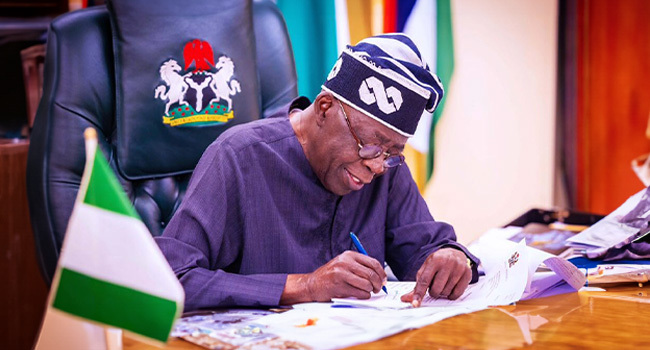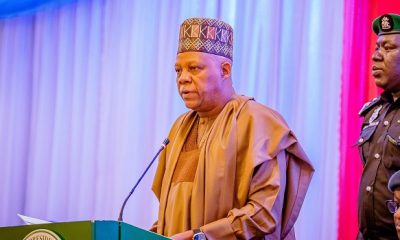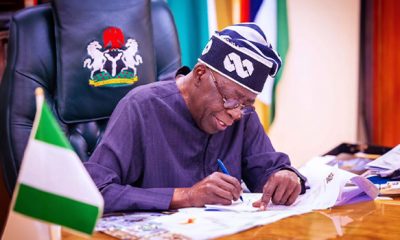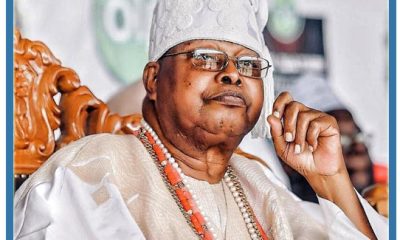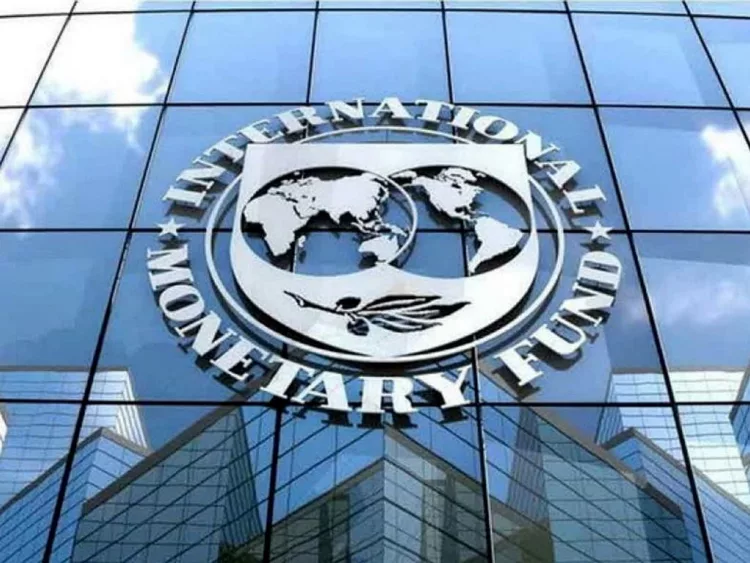President Bola Tinubu has established the Presidential Economic Coordination Council comprising himself, the Vice President, Senate President and the Chairman of the Nigerian Governors Forum among 27 others.
Wednesday’s move is “in furtherance of his administration’s efforts at re-engineering the nation’s economic governance framework,” the Presidency said in a statement signed by Tinubu’s Special Adviser on Media and Publicity, Ajuri Ngelale.
The statement is titled ‘President Tinubu establishes comprehensive economic coordination and planning system for Nigeria.’
The PECC also comprises members of the organised private sector who would serve for one year.
1
Tinubu’s new formation also includes 19 other persons to serve on the Economic Management Team Emergency Taskforce, which was approved by the Federal Executive Council on Monday.
Ngelale, who announced the economy-focused initiatives, said the setting up of the PECC and the EET is a strategic move to ensure robust and coordinated economic planning and implementation.
Members of the PECC include President Tinubu as Chairman, Vice President Kashim Shettima as Vice-Chairman; President of the Nigerian Senate; Chairman, Nigeria Governors’ Forum; Coordinating Minister for the Economy and Minister of Finance; Governor of the Central Bank of Nigeria; Ministers of Agriculture and Food Security; Aviation and Aerospace Development and Budget and Economic Planning.
Others include Ministers of Communications, Innovation and Digital Economy; Industry, Trade and Investment; Labour and Employment; Marine and Blue Economy; Power; State, Petroleum Resources; State, Gas; Ministers of Transportation and Works.
The 13 members representing the organised private sector for one year include Chairman of Dangote Group, Aliko Dangote; UBA Chairman, Mr. Tony Elumelu; BUA Founder, Abdulsamad Rabiu, Ms. Amina Maina, Mr. Begun Ajayi-Kadir, Mrs. Funke Okpeke and Dr. Doyin Salami.
Other private-sector members of the PECC are Mr. Patrick Okigbo, Mr. Kola Adesina, Mr. Segun Agbaje, Mr. Chidi Ajaere, Mr. Abdulkadir Aliu and Mr. Rasheed Sarumi.
Meanwhile, President Tinubu also established the Economic Management Team Emergency Taskforce, which Ngelale said is in his determination to “address immediate economic challenges and ensure the streamlined execution of economic strategies.”
The EET will is mandated to formulate and implement a consolidated emergency economic plan in “furtherance of the President’s collaborative approach toward achieving economic resilience and growth.”
Members include the Coordinating Minister of the Economy and Minister of Finance who serves as Chairman, Minister of Budget and Economic Planning, Minister of Power, Minister of Agriculture and Food Security, Coordinating Minister of Health and Social Welfare, and Minister of Industry, Trade and Investment.
Others are the Governor of the Central Bank of Nigeria, National Security Adviser, Chairman, Nigeria Governors’ Forum, Governor of Anambra State, and Governor of Ogun State.
The Governor of Niger State, Executive Chairman, Federal Inland Revenue Service, Director-General, Budget Office of the Federation, GCEO, NNPC Limited, Director-General, Nigeria Economic Summit Group, Special Adviser to the President on Energy, Economists, Dr. Bismarck Rewane and Dr. Suleyman Ndanusa are also members.
On its operations, Tinubu mandated the 19-member team to meet twice weekly and submit a comprehensive plan of economic interventions for 2024 to the PECC.
The plan covering the next six months will be due for immediate implementation within two weeks of the EET’s inauguration.
“Over the next six months, the EET will focus on the rapid implementation, monitoring, and evaluation of critical initiatives, strengthening the Tinubu-led administration’s collective approach to advancing Nigeria’s economic objectives,” said the Presidential Spokesperson.
Ngelale also revealed that the Economic Management Team, established in October 2023, and chaired by the Coordinating Minister for the Economy and Minister of Finance, Wale Edun, will serve as the working group under the PECC, “playing a crucial role in the economic governance structure established by the president.”
Consequently, the Economic Management Team, which traditionally meets monthly or as required, will suspend all meetings for the duration of the EET’s six-month mandate.
The EMT comprises the Coordinating Minister for the Economy and Minister of Finance, who served as its Chairman, Governor of the Central Bank of Nigeria, Minister of Budget and Economic Planning, Minister of Industry, Trade and Investment, Minister of Communications, Innovation and Digital Economy, Minister of Works, and Minister of Labour and Employment.
Other members are the Minister of Agriculture and Food Security, Minister of State, Petroleum Resources, Minister of State, Gas, Minister of Power, Minister of Transportation, Minister of Aviation and Aerospace Development, and Minister of Marine and Blue Economy.
The presidential spokesman explained that “The Chairman of the EMT may, as needed, call on any Federal Minister or Head of Agency to brief the EMT on key programmes and developments affecting the economy.”
He noted that the President’s formation of the PECC, under his Chairmanship, alongside the creation of the EET, led by the Chairman of the EMT, and the EMT itself, manifests a unified strategy aimed at enhancing Nigeria’s economic management architecture for verifiably improved performance.
“The formation of these teams will complement existing economic governance structures, including the National Economic Council, which is chaired by the Vice-President,” the statement said.

 News3 years ago
News3 years ago
 Entertainment2 years ago
Entertainment2 years ago
 News3 years ago
News3 years ago
 Privacy3 years ago
Privacy3 years ago
 Sports2 years ago
Sports2 years ago
 Entertainment2 years ago
Entertainment2 years ago
 Opinion3 years ago
Opinion3 years ago
 News3 years ago
News3 years ago
